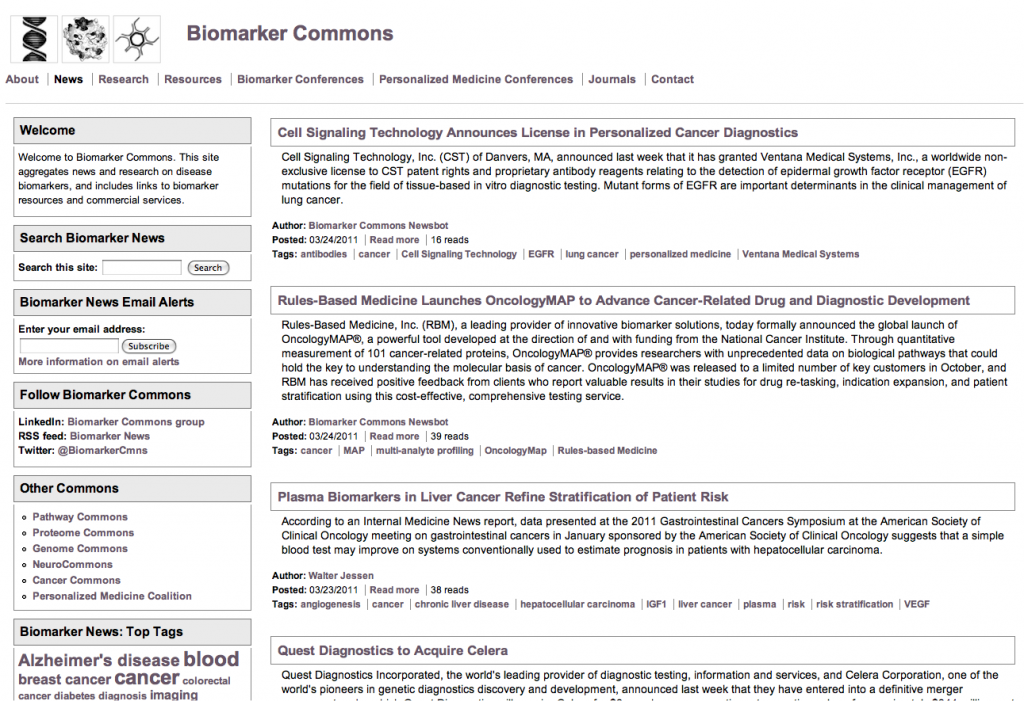Cancer Biomarker Resources
Many regular readers will remember the interview with Dr Sue Desmond-Hellmann, the Chancellor of UCSF, on the I-SPY2 trial, a large neoadjuvant study that seeks to accelerate the pace of identifying effective novel agents for early breast cancer by incorporating biomarkers from the beginning and an adaptive conjoint design. Biomarkers is definitely something that is very much to the fore these days.
A great resource for scientists involved with research in the biomarker field is Biomarker Commons, curated by my friend Walter Jessen, who describes himself as,
“a computational biologist focused on biomarker discovery and prioritization”
Now that sounds like a fun job to me!
Walter has put a very nice site together in his spare time (he also runs Highlight Health a site dedicated to biomedical research as well as having a day job). Biomarker Commons collates news, research and journal articles about biomarkers – it’s well worth checking out of you are interested in this field:

I subscribe to the RSS feed for news items myself and find it very useful indeed, as well as loving the clean easy to use interface.
Another useful resource is the Biomarkers Consortium, which describes itself as:
“The Biomarkers Consortium is a major public-private biomedical research partnership managed by the Foundation for the National Institutes of Health with broad participation from stakeholders across the health field, including government, industry, academia and patient advocacy and other non-profit private sector organizations.
In addition to the Foundation for NIH, founding members include the National Institutes of Health, Food and Drug Administration and the Pharmaceutical Research and Manufacturers of America.”
The link above takes you to their active projects, which includes ISPY2, but if you are involved in cancer research, they welcome new project ideas and submissions too.
Related to biomarkers is companion diagnostics and this is something big Pharma and Biotech are both active in. At least in high tech areas such as oncology. As we identify and validate more biomarkers associated with disease, so the need for tests to measure them will increase.
In the long run, insurers in the US will also be happier because biomarkers will ultimately lead to fewer patients being treated with higher priced new therapeutics ie those most likely to benefit, rather than exposing thousands of patients to the systemic effects of a targeted therapy.
What was interesting though, was learning at European Association Urology meeting that in Germany, for example, bone mineral density measurements using DXA are not covered and patients must pay for them out of pocket. These measurements are often required to determine the degree of bone loss. For therapies that treat cancer-associated bone loss such as zoledronic acid (Zometa), which is currently approved and denosumab (Xgeva), which is pending approval in Europe, this may limit uptake of the drug.
This weekend I will be attending the annual American American of Cancer Research (AACR) meeting in Orlando and look forward to catching up on the various new developments not just in basic research, but also biomarkers and companion diagnostics. It promises to be an interesting meeting!